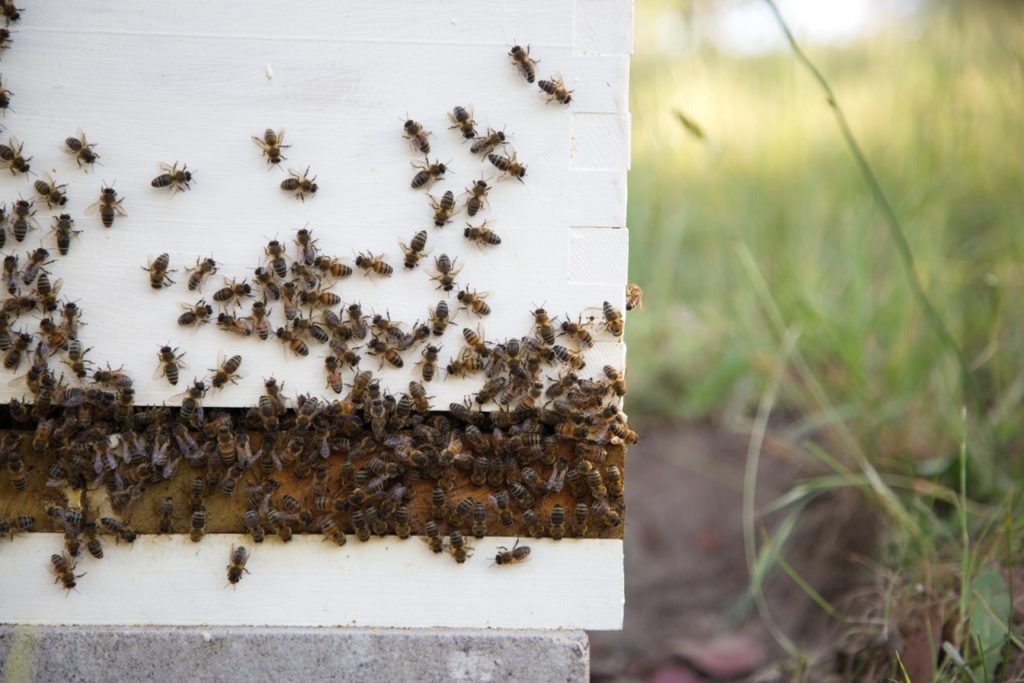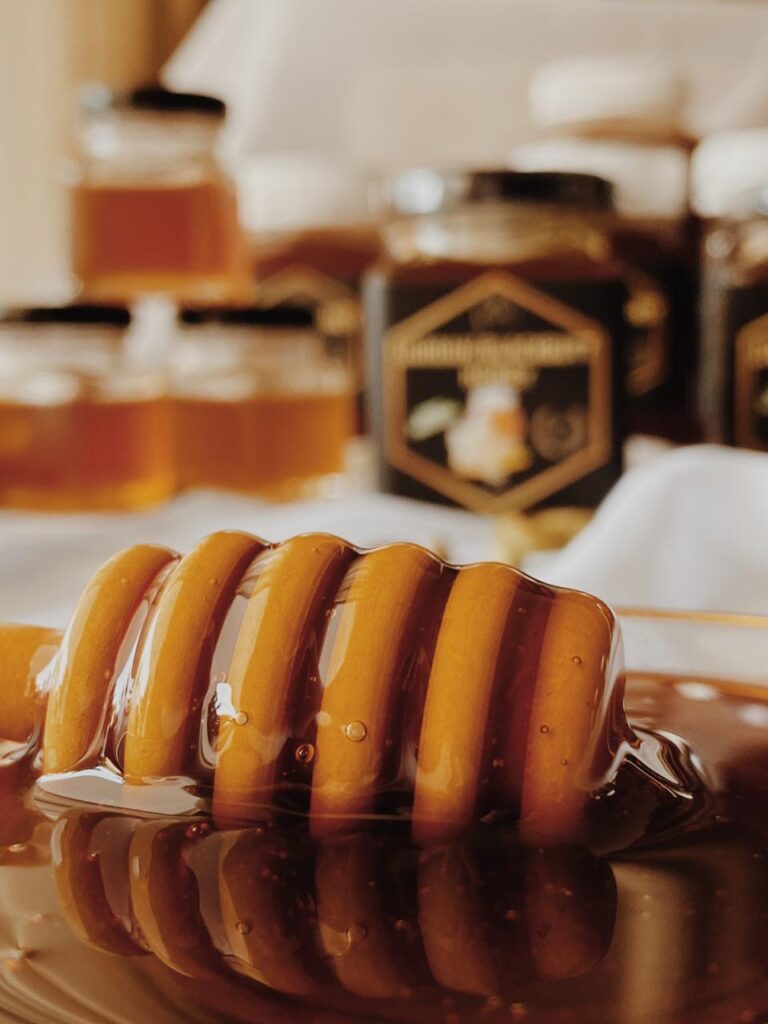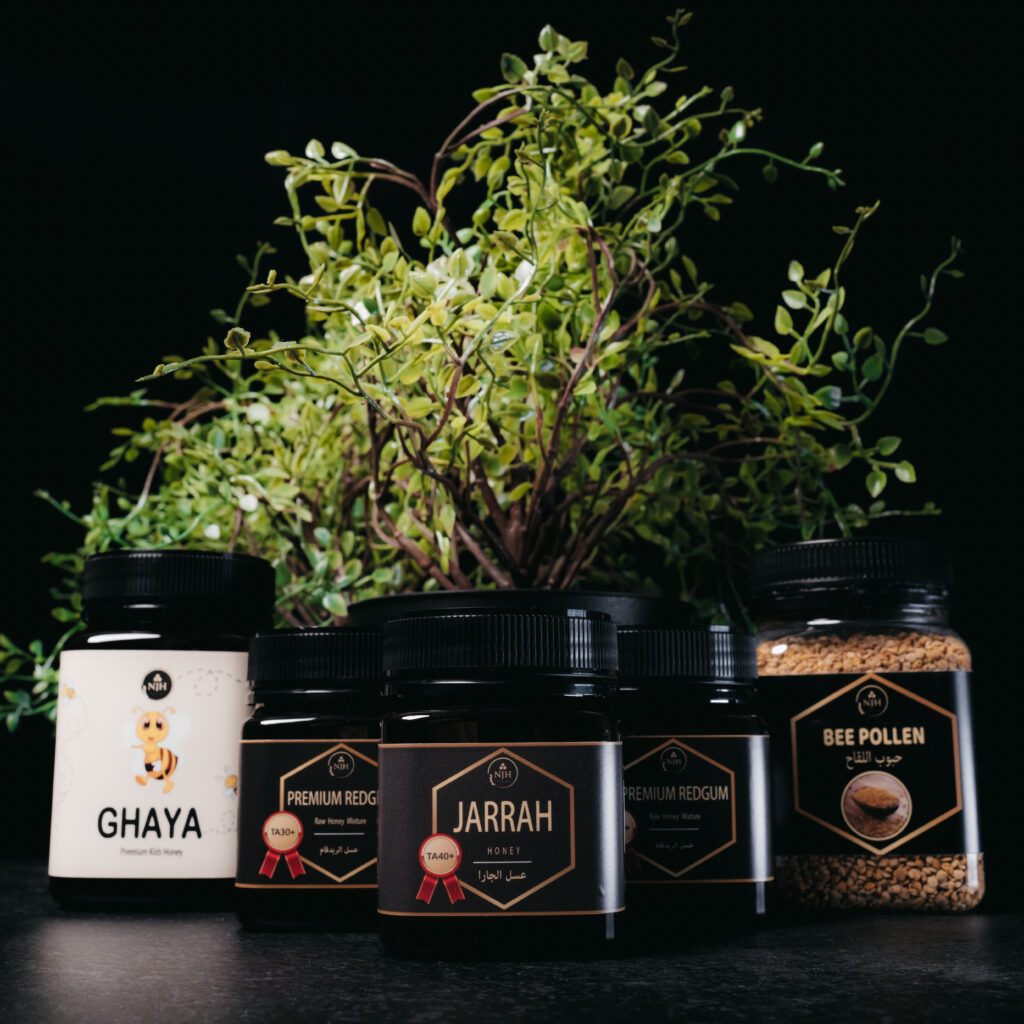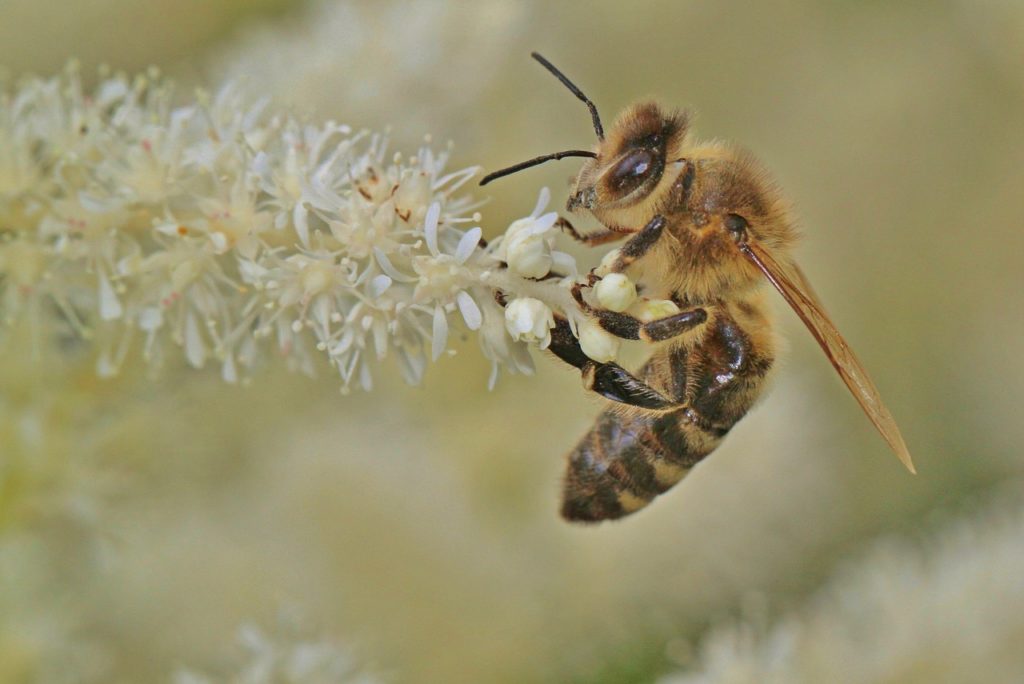Explore Our Great 100% Organic Honey Collection
Your first spoonful to a healthier lifestyle!
– Prophet Muhammad S.A.W.

Jarrah Honey
There is nothing quite like Jarrah Honey. It’s a natural healing honey that is highly prized around the world. Jarrah honey is produced by bees using the nectar from the jarrah tree. The Jarrah tree is only found in remote locations around Western Australia, and has only one flowering season once every two years. This means that it is a very rare honey to come by.
Antimicrobial & Antifungal
The antimicrobial quality of Jarrah honey is measured by the term “total Activity (TA)” The TA is like a bacteria killing scale. The higher the TA the greater the antimicrobial strength of the honey. Not all honey has the same level of antimicrobial power as Jarrah honey. Because of this antifungal super power, Jarrah honey is

Explore our products
Explore a great different varieties of our 100% natural and organic raw honey.


Bee Pollen
Bee pollen is considered so beneficial that the German Federal Board of Health recognizes it as medicine. Advocates are quick to tout the benefits of this so-called superfood, saying it can:
- Relieve inflammation
- Work as an antioxidant
- Boost liver health
- Strengthen the immune system
- Work as a dietary supplement
- Ease symptoms of menopause
- Reduce stress
- Speed up healing
Did you know?

- Bees have 5 eyes
- Bees are insects, so they have 6 legs
- Male bees in the hive are called drones
- Bees fly about 20 mph
- Female bees in the hive (except the queen) are called worker beesNumber of eggs laid by queen: 2,000 per day is the highest
- Losing its stinger will cause a bee to die
- Bees have been here about 30 million years!
- Bees carry pollen on their hind legs in a pollen basket or corbicula
- An average beehive can hold around 50,000 bees
- Foragers must collect nectar from about 2 million flowers to make 1 pound of honey
- The average forager makes about 1/12 th of a teaspoon of honey in her lifetime



